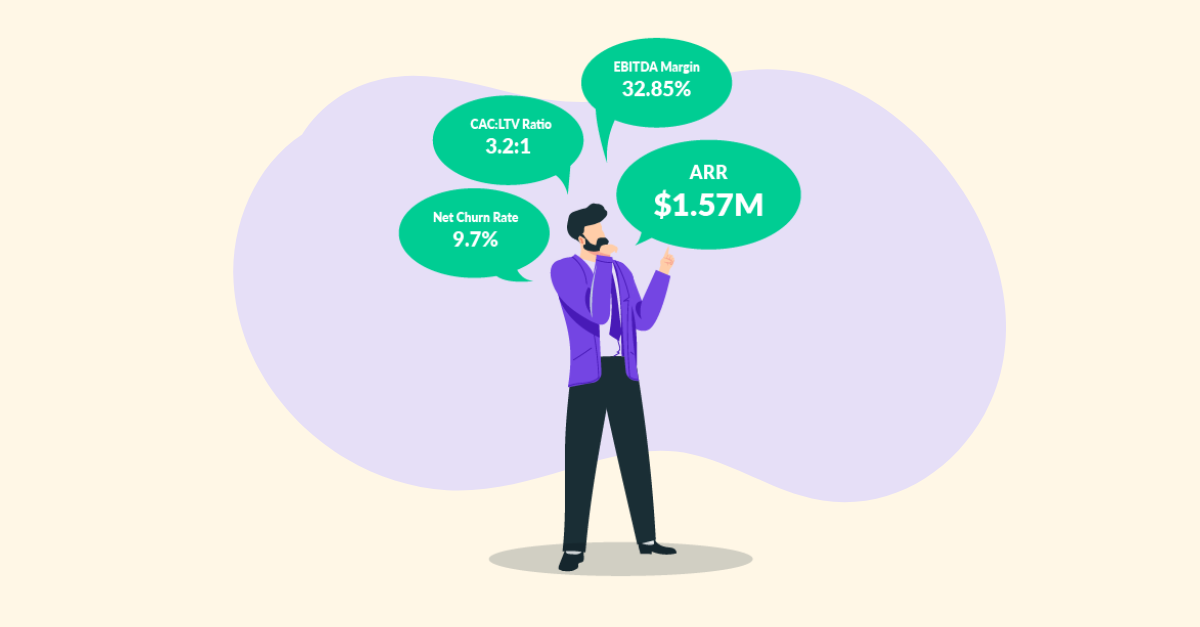How to crush every metric that matters for revenue-based financing
Revenue-based financing (RBF) is reshaping how businesses raise capital, offering a flexible alternative to traditional loans and venture capital. To...
3 min read
 Logan Burchett
December 10, 2021
Logan Burchett
December 10, 2021
A convertible note is a form of short-term debt that later converts into equity at the time of a future financing round. It's one common way early-stage startups can raise growth capital.
When you raise money on a convertible note, you create debt with a maturity date, which denotes the date on which the note is due, at which time the company needs to repay it.
The debt carries an interest rate and other debt-specific terms, but it also contains provisions that allow the debt to convert to equity at the qualified financing round, which will determine the terms of the convertible note.

Typically, the debt will convert to equity at a discount to valuation. These terms may prove favorable for investors because a lower valuation implies higher percent ownership.
For example, Company X raises $1M from Bob Investor on a convertible note. In partnership with Bob Investor, they set the terms of the note so that the debt will convert to equity at the next qualified financing round at a 10% discount of valuation.
Then, at the next round, Company X achieves a $10M pre-money valuation. With the 10% discount rate set in the terms of the note, Bob Investor essentially invested at a $9M pre-money valuation with his convertible note.
Watch this video for a quick deep dive:
The discount rate represents the valuation discount the investor receives relative to investors in the subsequent financing round.
Essentially, convertible note investors receive compensation later on through an increased percentage of ownership because the note allowed them to get in at a lower valuation. These investors took on additional risk by investing in the early-stage company without an official valuation, so it makes sense for them to reap a larger reward.
However, this increased risk also means that convertible note investors may not come out on top. Because the future valuation at the next qualified financing round is unknown, investors may receive a minuscule percentage of equity ownership if the next valuation is extremely high.
Consider the previous example. If Bob Investor gives Company X $1M at a 10% discount rate, but Company X achieves a $100M valuation at the next round, Bob ends up with only 0.9% equity.
Had Bob known how high the valuation would be at the time of investment, he might have decided to invest more money or pull out completely, since that $1M did not take him very far.
To prevent this unfortunate outcome, convertible note investors like Bob will often include a valuation cap in the terms of the note, which effectively caps the price at which the notes will convert into equity.
Not only does this protect the value of the investment, but it also provides convertible noteholders with equity-like upside if the company takes off at the time of the next financing round.
Since the investor is lending money to a company, convertible notes will more often than not accrue interest. However, as opposed to being paid back in cash, this interest accrues to the principal invested, increasing the number of shares issued upon conversion.

Early-stage startups often opt for convertible notes because no valuation is required at the time of investment. However, well-established companies may also opt for the convertible note during a fundraise, because it’s so simple to execute.
Issuing notes proves relatively inexpensive for companies and allows them faster access to investor funding.
As mentioned, convertible notes do not force the issuer and investors to determine the value of the company, particularly when the company is an early-stage startup and simply may not have much value yet.
The investors may lean on more qualitative data points to determine future success and take a calculated risk to invest on a convertible note. By the time the next financing round comes along, that company will (in theory) have more data points like customers and revenue to support an official valuation.
Companies issue convertible notes for two main reasons.
First, the note lowers the coupon rate on debt, which may prove favorable to investors because of the equity-conversion terms. This also allows the investor to save on interest expenses, which can be substantial.
Second, the convertible note delays dilution to its equity holders. A company may prefer to issue debt security in the relatively short-term future, partly because interest expense is tax-deductible. However, the company can plan for greater dilution over the long-term future if the net income and share price grow significantly faster than the rate of dilution. This may force conversion at a higher share price.
Ultimately, we recommend that founders raise funds using a convertible note if it allows them to gain traction with investors and close the round. Convertible notes provide a great tool for early-stage startups to secure investment through simple execution.
Forecastr’s simple financial modeling tool gives you the power to share your vision with investors and close checks quickly. Request a demo here: Get Started
Get notified about new events, free resources, and fresh content

Revenue-based financing (RBF) is reshaping how businesses raise capital, offering a flexible alternative to traditional loans and venture capital. To...

Raising Series A funding is a critical and challenging stage for any startup. For many new companies, this is the first time in their financing...

In our last post, we shared that the number one reason startups fail is running out of money due to cash planning mistakes. Founders must prove a...